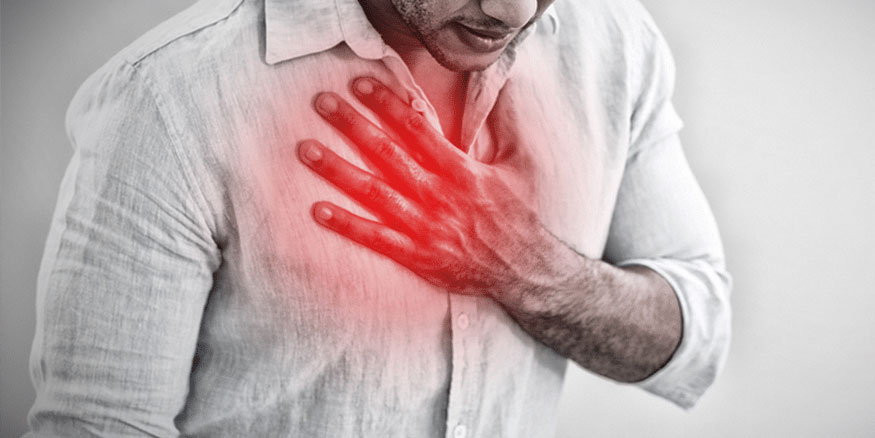
Almost everyone has heartburn at some point in their lives. Heartburn affects approximately 60 million Americans at least once a month. Furthermore, over 15 million Americans suffer from heartburn daily.
Heartburn frequently manifests as a burning chest pain beneath the sternum. This happens due to abnormal reflux of stomach contents into the esophagus. Acid reflux and heartburn can be harmful to one’s health.
People who have heartburn more than twice a week have gastroesophageal reflux disease (GERD), a chronic medical condition. According to the American College of Gastroenterology, approximately 20% of Americans suffer from GERD.
This article will discuss when you should see one of the professional gastroenterologists for heartburn and what symptoms to look for. We’ll also go over heartburn diagnosis and treatment, including natural remedies. Continue reading to find out how to deal with heartburn.
When to Call Your Doctor About Heartburn
The severity of heartburn varies. Some people may occasionally experience a burning sensation in the lower chest. Others, on the other hand, may share it every day.
If you have occasional heartburn symptoms that go away quickly, you rarely need to see a doctor. Infrequent heartburn symptoms can often be alleviated by making lifestyle and dietary changes.
If you have frequent episodes of heartburn, such as more than twice a week, you should see your doctor. You should see a board-certified gastroenterologist if you’ve had heartburn for a long time or had persistent heartburn that went away. This could be a symptom of Barrett’s esophagus, a medical condition.
The most common heartburn symptoms are chest burning and regurgitation. However, it can also cause other symptoms that necessitate medical attention, such as:
- Unexplained cough
- Sinusitis
- Worsening asthma
- Stomach or chest pain
- Nausea or vomiting
- A raspy voice or sore throat
If you experience any of the following symptoms, you should see a gastroenterologist as soon as possible:
- Trouble swallowing or the sensation that food is becoming stuck on the way down
- Choking while eating
- Losing weight without making an effort
- Passing bloody stools or vomiting blood
Diagnosis and Treatment of Heartburn
Your symptoms and medical history are frequently used to diagnose heartburn. Your doctor may order tests to confirm a GERD diagnosis in more severe cases. The following tests can detect esophageal or stomach damage:
- Upper endoscopy: Your doctor will insert a scope down your throat to examine the esophagus and stomach during this procedure. This test can examine tissues for abnormalities and determine the severity of the disease.
- Barium x-ray: Your doctor can see the back of your throat, esophagus, and stomach with this x-ray test. You drink a chalky substance called barium before the test. Barium absorbs x-rays, making your internal organs visible. This aids in the detection of structural or functional swallowing issues.
- PH monitoring: This test monitors acid reflux by inserting a tiny, wireless capsule into the esophagus. The capsule transmits data to a monitor, which tracks your sleep, diet, and symptoms. PH monitoring is the most precise method of detecting stomach acid in the esophagus.
Heartburn treatment usually begins with dietary and lifestyle changes. However, if your symptoms persist, your doctor may advise you to take medications or have surgery.
Natural Treatments for Heartburn
Treatment for heartburn is often successful with non-invasive, natural treatment options.
- Avoid acidic and fatty foods. This can irritate the esophagus and cause heartburn. Fatty foods also cause the stomach to produce more acid, increasing your risk of acid reflux.
- Avoiding common trigger foods such as:
- Tomato-based products
- Citrus fruits such as lemons, oranges, and grapefruit
- Greasy foods such as pizza and potato chips
- Fatty meats
- Cheese
- Coffee
- Chocolate
- Peppermint
- Carbonated beverages such as soda or sparkling water
- Practice a healthy lifestyle. Maintaining a healthy weight with regular exercise and a plant-based diet can lower your risk of heartburn. Excess weight in the abdominal area increases pressure on the stomach, which can cause stomach acid and bile to leak into the esophagus.
- Change the way you eat. Overeating can cause heartburn because it increases pressure on the lower esophageal sphincter (LES).





